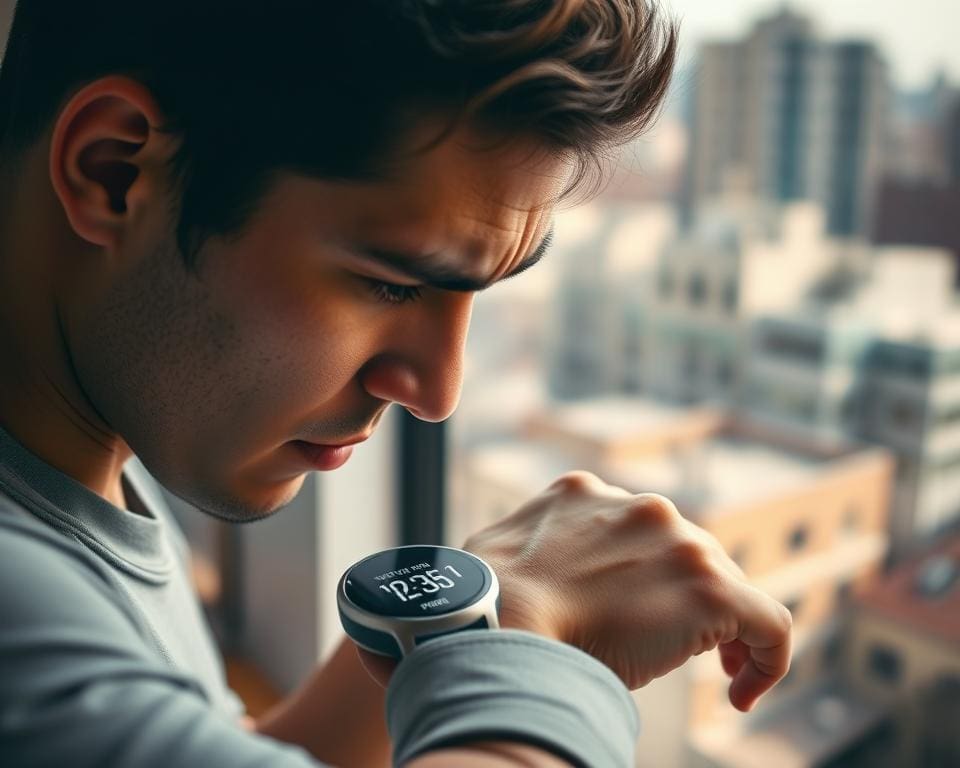In today’s fast-paced world, many individuals rely on technology to monitor their health and wellbeing. Among the most popular advancements, smartwatches have emerged as essential tools in fitness tracking, promising to provide insights that can inspire change. But can your smartwatch tell you how lazy you are? With features designed for smartwatch data analysis, these devices offer a window into your daily activities, including sedentary lifestyle detection.
As research reveals, wearables have transitioned from novel gadgets to vital companions in recognising activity patterns. Equipped with advanced sensors and algorithms, smartwatches enable users to take charge of their health. By examining the metrics they present, individuals are empowered to address their habits and make informed decisions. This introduction sets the stage for an in-depth exploration of how smartwatches can illuminate paths towards improved fitness and awareness of inactivity.
Understanding Smartwatch Data Analysis
Smartwatches have transformed the way we approach fitness and health by utilising advanced technology for accurate data collection. Through sophisticated algorithms, these devices are capable of executing comprehensive smartwatch data analysis. This analysis not only provides valuable insights but motivates users to adopt healthier lifestyles.
The role of algorithms in activity tracking
Brands like Fitbit and Garmin employ complex machine learning algorithms to refine their activity tracking features. These algorithms meticulously evaluate data from various sensors, such as accelerometers and heart rate monitors. By doing so, they monitor metrics like steps taken, heart rate, and distance covered. This transformation of raw data into comprehensible insights allows users to gain a better understanding of their daily activity levels.
Interpreting your smartwatch’s metrics
Understanding the health metrics evaluation presented on a smartwatch is crucial for leveraging its full potential. Users can assess their fitness by interpreting different displayed metrics, which might include:
- Daily step count
- Calories burned
- Heart rate variability
- Sleep patterns
These figures serve as a foundation for analysing personal health and wellness, empowering users to set achievable fitness goals. Such an informed approach not only enhances awareness but fosters a proactive attitude towards combating sedentary behaviours.

Can your smartwatch tell you how lazy you are?
Today’s smartwatches serve as more than just timekeepers; they play a crucial role in sedentary lifestyle detection. Multiple brands, including the Apple Watch and Samsung Galaxy Watch, incorporate advanced technology to assist users in recognising and combatting periods of inactivity. This technology provides insights that can transform daily routines and encourage healthier choices.
How smartwatches monitor sedentary lifestyles
Smartwatches continuously track a wearer’s movements and behaviours throughout the day. By employing sensors such as accelerometers and gyroscopes, these devices can effectively monitor how much time users spend in a sedentary state. When prolonged inactivity occurs, the smartwatch issues physical inactivity alerts to prompt the wearer to engage in movement. This proactive approach not only highlights the dangers of sitting for too long but also encourages better health habits.
Technology behind inactivity alerts
The ingenious fitness monitoring technology behind inactivity alerts combines real-time data analysis with user-friendly notifications. As the smartwatch detects less movement, it activates a series of alerts that aim to motivate the wearer to stand or move around. Such features help bridge the gap between awareness and action in the battle against a sedentary lifestyle, empowering individuals to take charge of their health.
Exploring Activity Tracking Features
Smartwatches have revolutionised the way we approach fitness, largely through their activity tracking features. Among these features, the daily steps count accuracy plays a vital role in motivating users and helping them achieve their fitness goals. Understanding how these devices measure our activity can significantly enhance our experience and progress.
Daily steps count accuracy explained
Accurate tracking of daily steps is essential for guiding fitness journeys. Some wearables, such as the Xiaomi Mi Band, are renowned for their impressive accuracy in counting steps. Various studies indicate that these devices reliably reflect an individual’s activity level. It is important to note that certain smartwatches may require calibration to improve their performance. Users should take the time to understand the capabilities of their devices, as this knowledge enables them to trust the data presented.
Customising your fitness goals with smartwatches
Another exciting aspect of smartwatches is their fitness goals customisation options. Users can tailor goals according to their individual fitness levels and aspirations. By setting specific benchmarks and targets, users can create a personalised plan that aligns with their lifestyle. This adaptability fosters a sense of ownership over one’s fitness journey, motivating individuals to remain active and committed. Over time, updating these goals can lead to significant improvements in one’s overall health and fitness.
The Impact of Fitness Monitoring Technology
Fitness monitoring technology has significantly influenced how individuals understand and manage their health. This innovation empowers users to take a proactive role in their wellness journeys. By leveraging various health metrics evaluation tools, people can gain valuable insights into their physiological states, leading to informed lifestyle choices.
Health metrics evaluation for personal insights
The ability to assess heart rate variability, sleep quality, and physical activity levels fosters deeper personal awareness. Such data, readily available through modern smartwatches, allows individuals to pinpoint areas for improvement. Regular monitoring encourages adjustments to exercise routines and daily habits, cultivating a more balanced lifestyle.
Trends in wearable tech for fitness enthusiasts
Wearable tech trends indicate a surge in advanced features such as built-in ECG and blood oxygen monitoring, making health data more accessible than ever. These developments represent a shift in the industry towards comprehensive health monitoring, promoting a holistic view of fitness. As brands evolve, the emphasis on integrating user-friendly tools in smartwatches continues to enhance motivation, leading users to strive towards their fitness goals.
Sleep Tracking Insights for Better Health
Understanding the relationship between sleep quality and overall health plays a crucial role in enhancing daily activities. Smartwatches like the Garmin Venu and Fitbit Charge offer invaluable sleep tracking insights, allowing users to analyse their sleeping patterns and recognise the significance of restful nights. When one considers that poor sleep can lead to decreased energy levels and hinder physical activity, it becomes essential to monitor these metrics for comprehensive fitness management.
The importance of sleep quality in activity levels cannot be overstated. Regularly receiving adequate restorative sleep increases vitality and bolsters performance during the day. Smartwatches provide data on sleep duration and quality, equipping users with the knowledge they need to comprehend how their nights impact their daytimes.
The importance of sleep quality in activity levels
Poor sleep quality can lead to fatigue and decreased motivation, making it difficult to engage in physical activities. Understanding the connection between restorative sleep and optimal activity performance can be a turning point for many individuals looking to enhance their overall wellness.
How sleep tracking can inform your daily routine
By integrating sleep tracking insights into individuals’ daily routines, users can make informed adjustments aimed at improving sleep quality. Some recommendations might include:
- Establishing a consistent sleep schedule
- Creating a relaxing bedtime routine
- Avoiding screens for at least an hour before bed
- Limiting caffeine and heavy meals close to bedtime
By making these small yet impactful changes, individuals can contribute significantly to daily routine improvement and overall health. Embracing the data garnered from sleep patterns can pave the way for a more active and fulfilling lifestyle.
Encouraging Positive Change Through Smartwatches
Smartwatches have become much more than mere fitness trackers; they embody powerful tools that can instigate encouraging positive change in our lives. By seamlessly integrating technology into our everyday routines, these devices provide the necessary motivation to increase our daily activity levels. Numerous users have shared their success stories, highlighting how monitoring their health metrics helped them to adopt a more active lifestyle and improve their well-being.
The health benefits associated with regular physical activity cannot be overstated. Users have reported reduced anxiety levels, enhanced mood, and better overall fitness as a result of being more aware of their activity patterns. With smartwatches capable of setting reminders for movement and tracking progress, individuals can foster daily activity motivation, transforming exercise from a chore into an engaging and rewarding experience.
In essence, embracing the capabilities of smartwatches can lead to significant lifestyle changes. By viewing these devices as partners in health, users unlock new potentials for self-improvement. The journey towards a healthier existence is not only more achievable but also more enjoyable when you have the support of technology on your side. So, consider how your smartwatch can encourage positive change and transform your daily routine into a celebration of movement and vitality.









